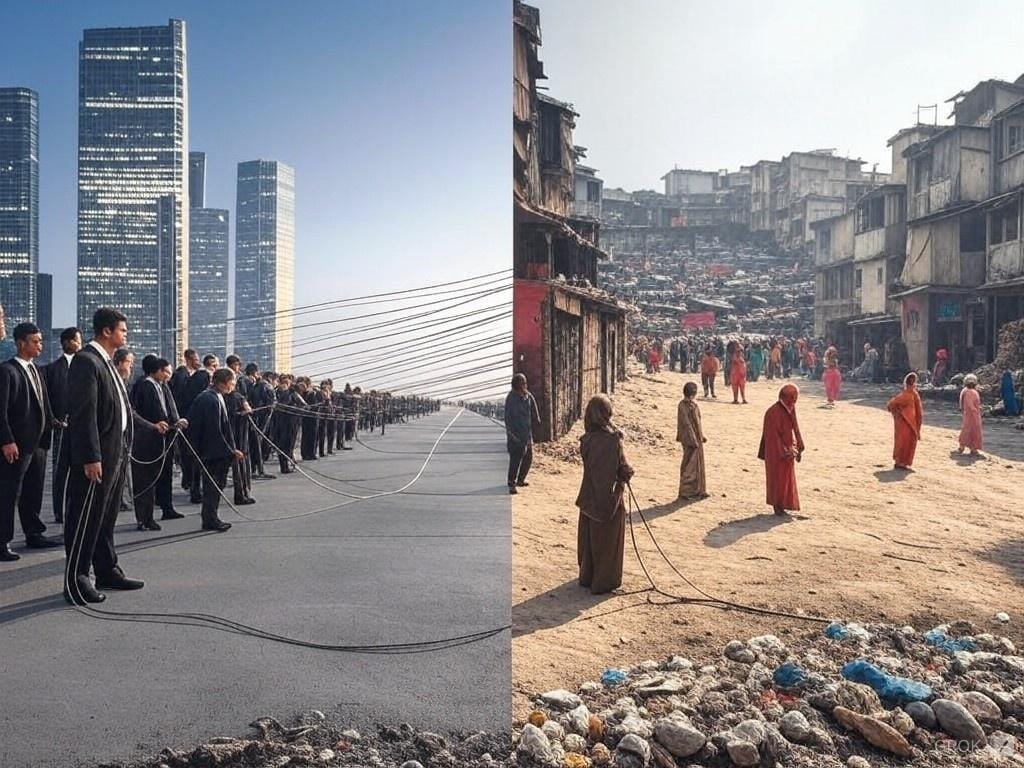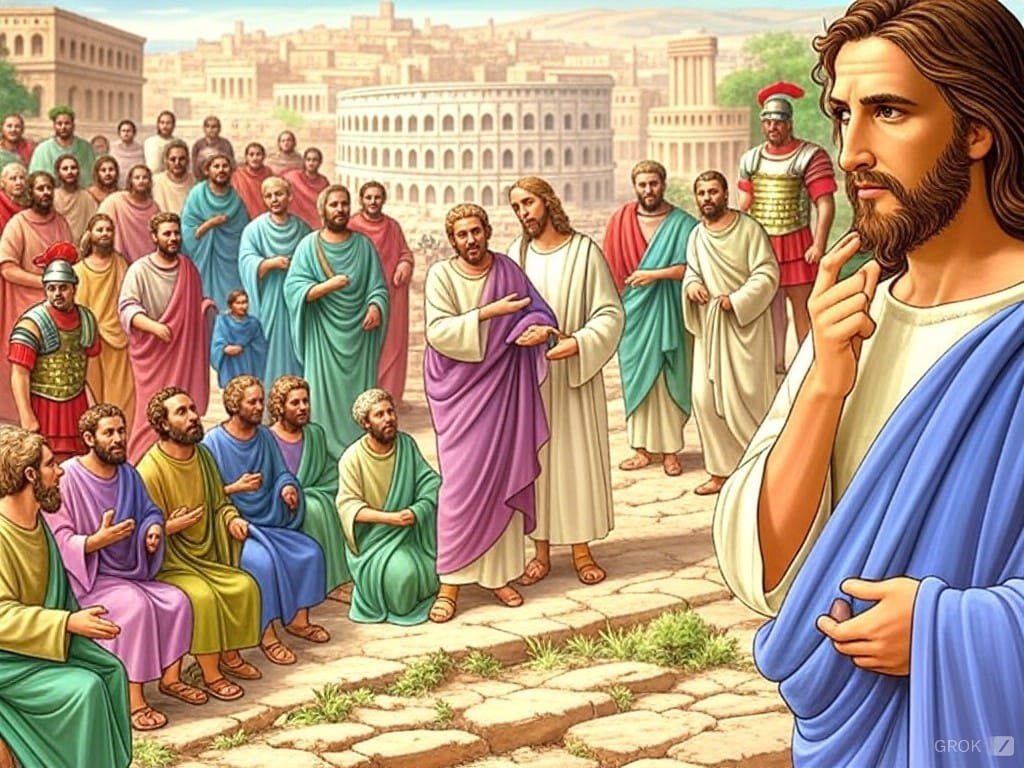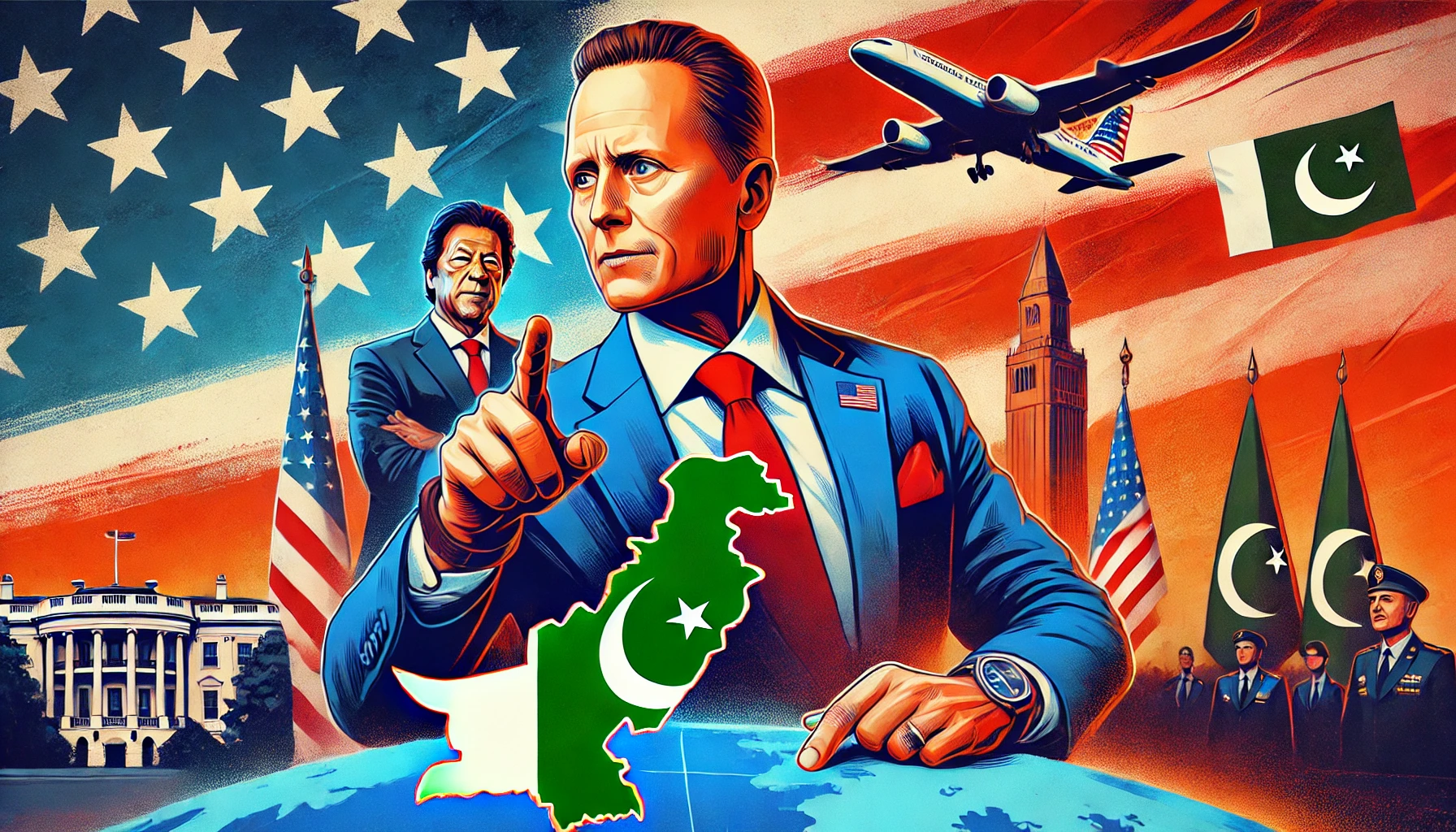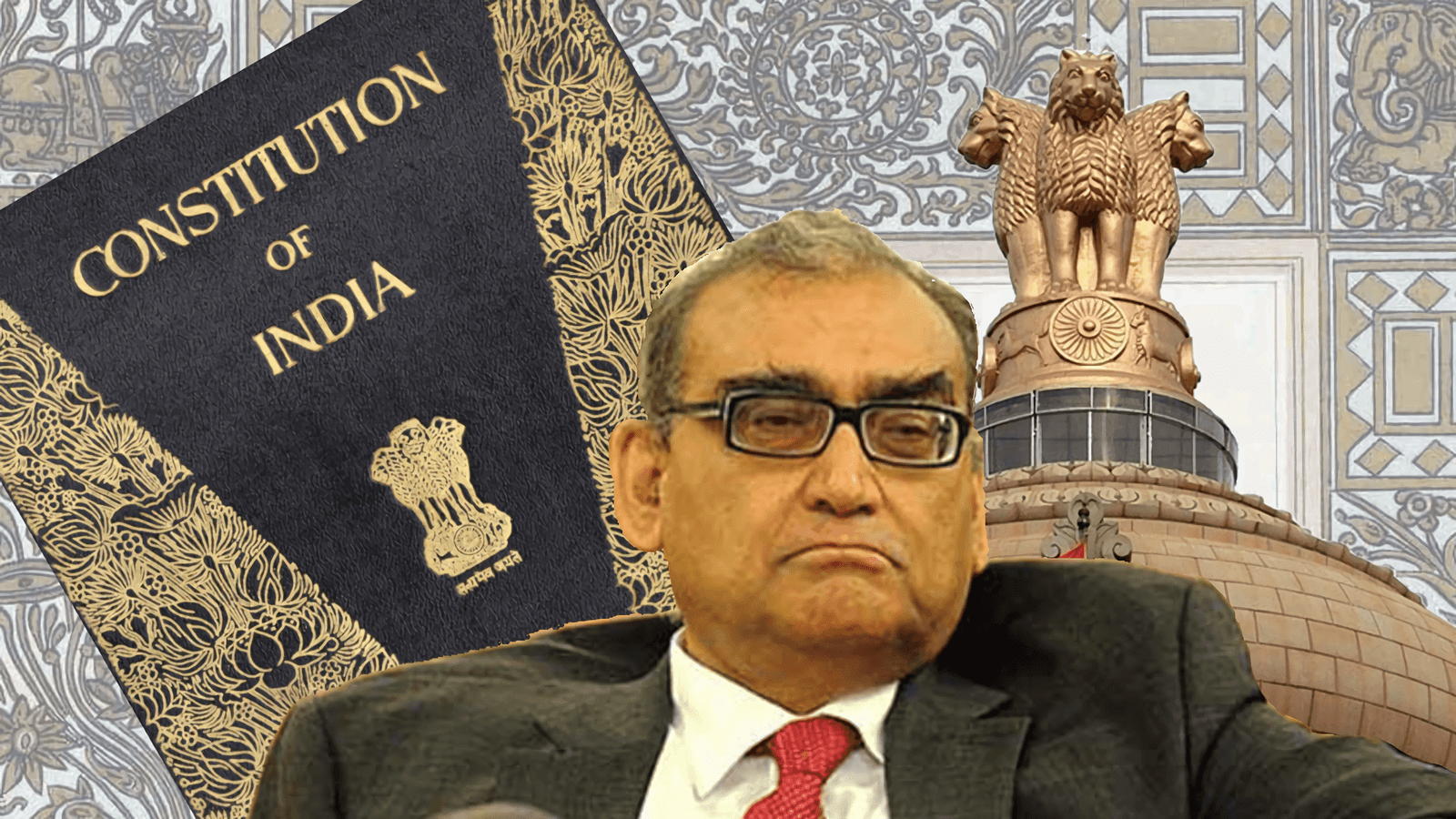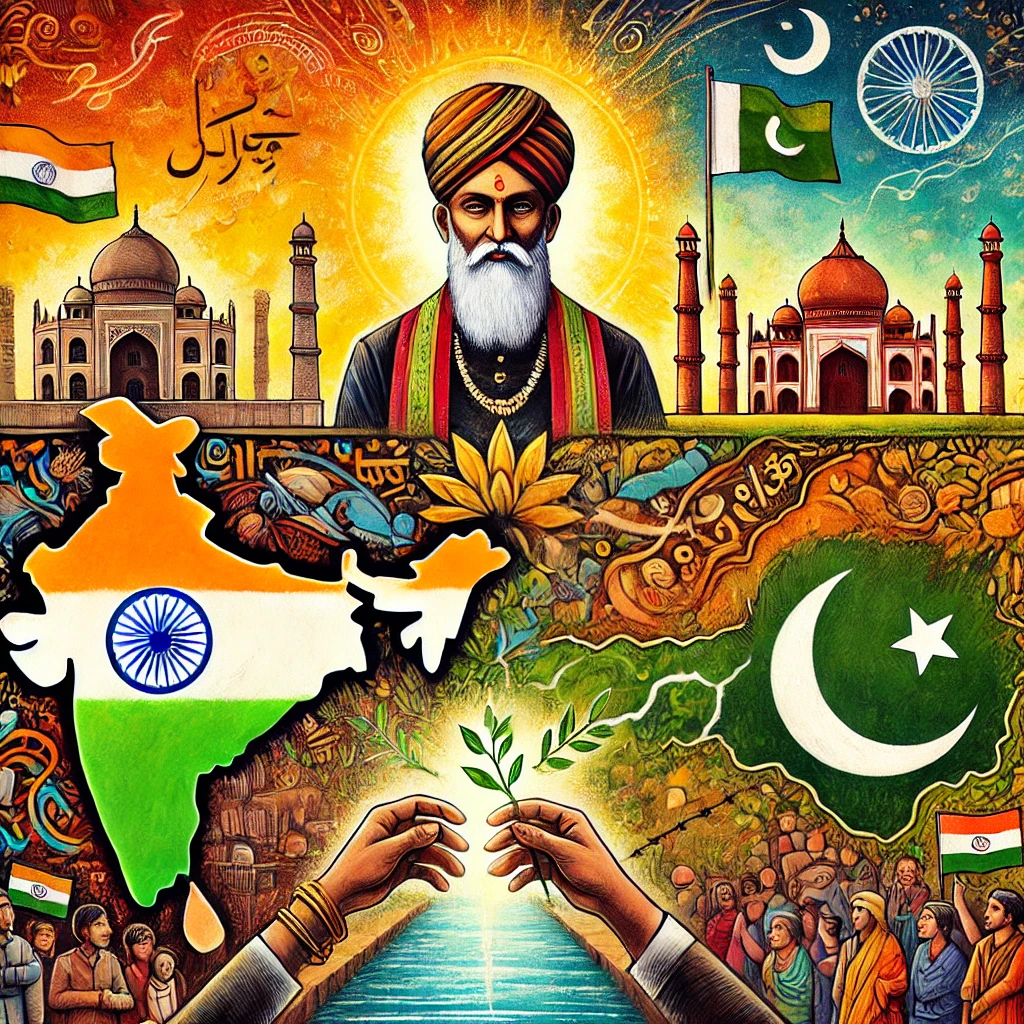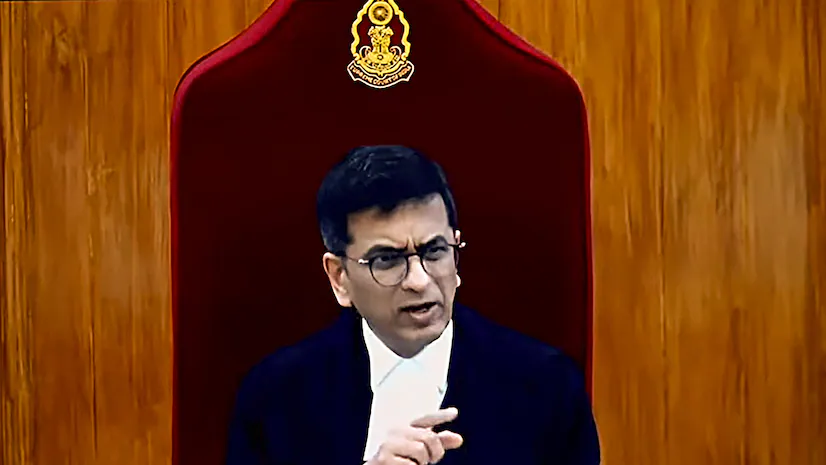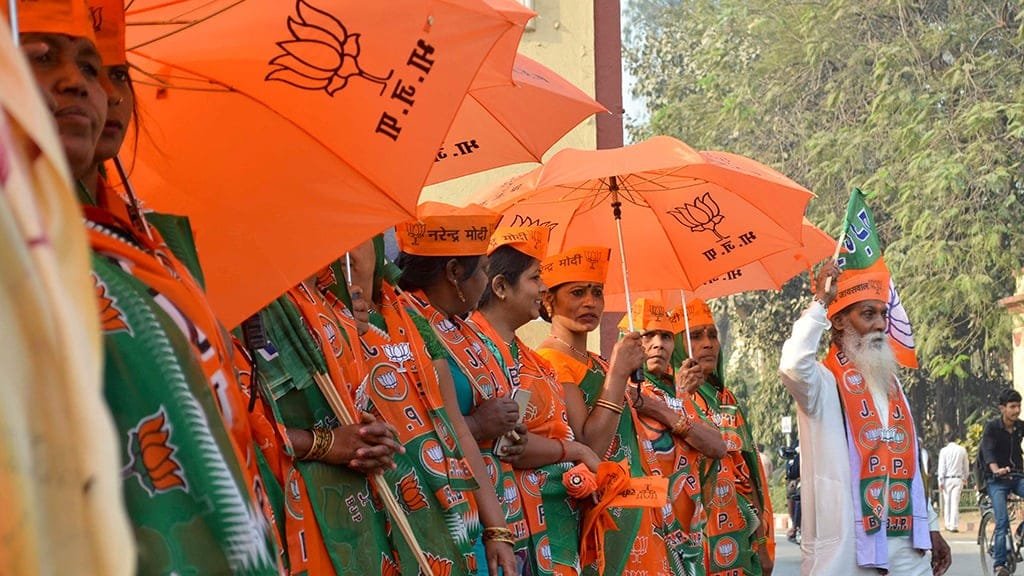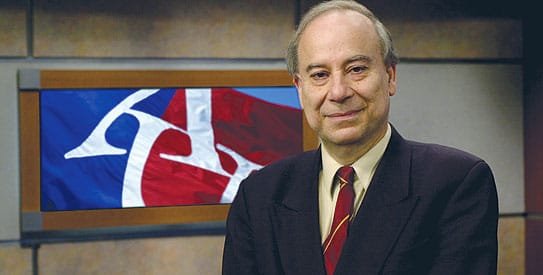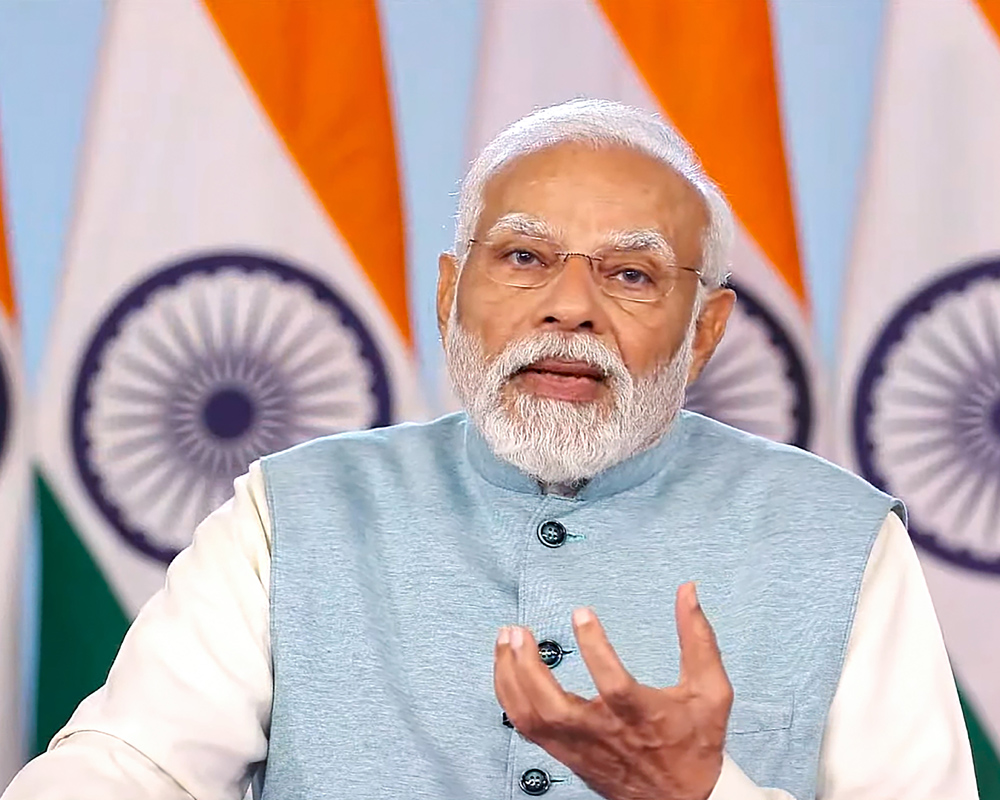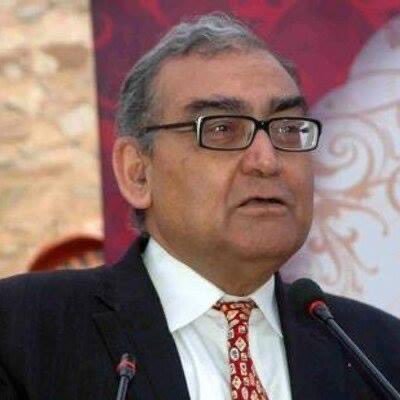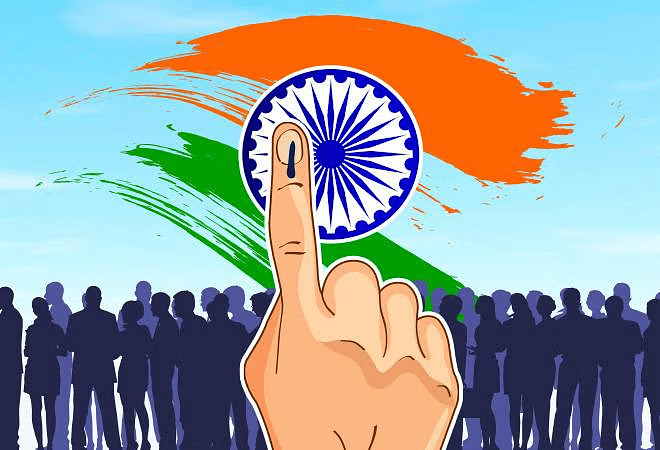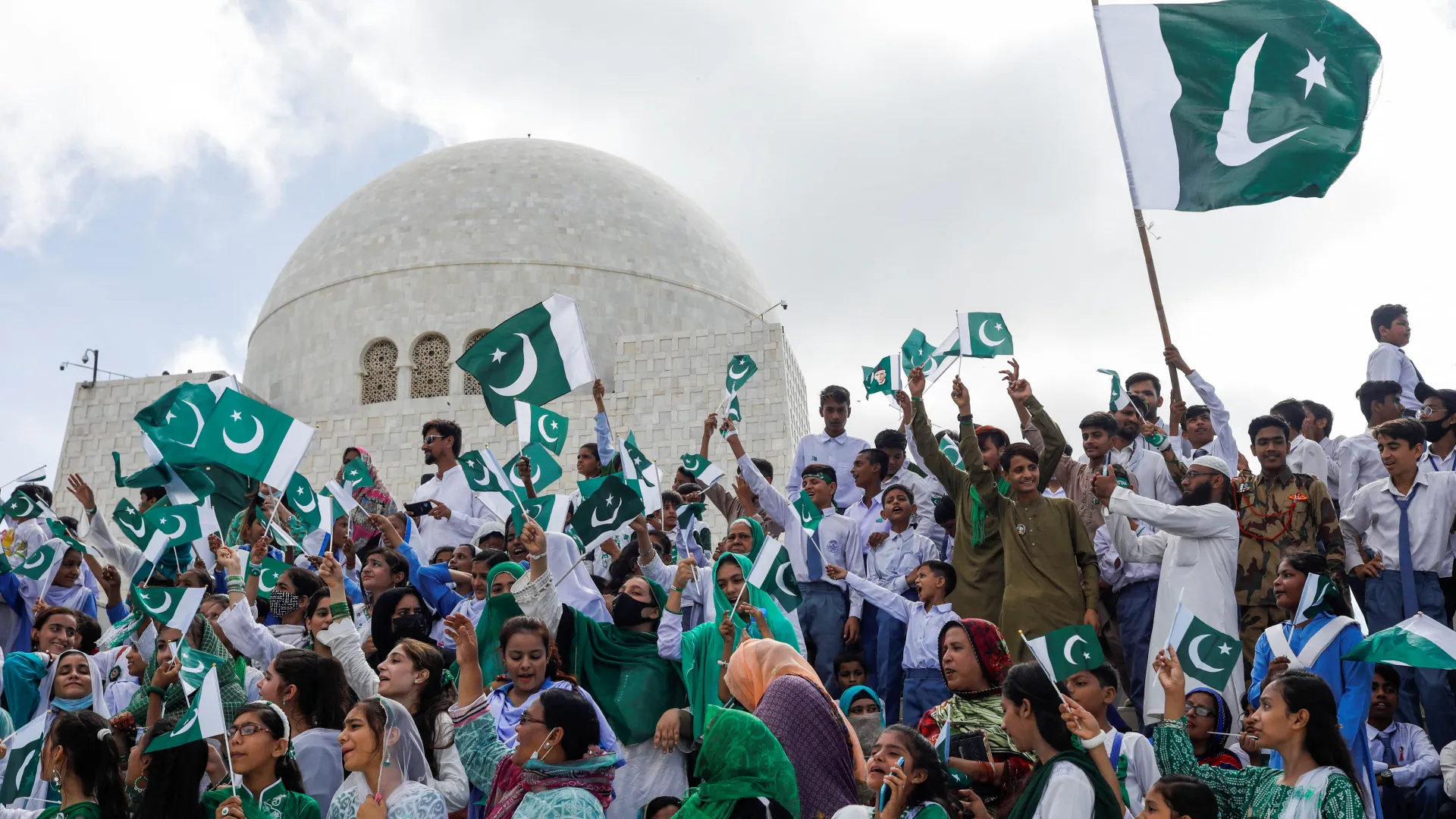Before explaining the meaning of this sher, it is necessary to mention that Urdu poetry often carries both a literal, outer, superficial meaning and an inner, deeper, real meaning. Often, one has to wrack one’s brain to understand the real meaning, to know what the poet is really seeking to convey. Urdu poets frequently express themselves not directly, but indirectly — through metaphors, allusions, hints, suggestions, and indications.
Tag: Markandey Katju
Our Long March has not even begun
India must transform into a modern industrial giant to eradicate poverty, unemployment, and malnutrition, drawing inspiration from China’s Long March which led to the 1949 Revolution. However, India remains caught in religious and caste-based divisions, exacerbated by perpetual elections and political polarization. Developed nations might resist this transformation due to competitive threats from India’s low-cost labor. The responsibility falls on India’s patriotic intellectuals to lead an ideological battle against feudal mindsets, superstitions, and communalism. Only through such a long, united struggle can India achieve socio-economic emancipation, marking what could be its finest hour in history.
Justice Katju Sees Trump’s Aid Denial as India’s Opportunity for Independence
In his commentary, Justice Katju argues that the suspension of foreign aid by President Donald Trump could serve as a catalyst for India’s self-reliance. He posits that reliance on foreign aid post-independence reflects a lack of self-respect and leads to economic dependency, often with exploitative conditions attached. Katju draws a parallel with China’s beneficial experience after the Soviet Union withdrew aid in 1960, suggesting that this could similarly spur India to harness its vast human and natural resources to become an industrial powerhouse. He advocates for India to rise independently on the global stage, free from the shackles of foreign aid.
Justice Katju’s Call for Embracing Akbar’s Suleh-e-kul in Today’s Political Climate
Suleh-e-kul, a doctrine of universal peace and tolerance, was promulgated by Emperor Akbar to unite India’s diverse populace. Emphasizing equal respect for all religions, this policy aimed to counteract the divisive tendencies inherent in a multi-ethnic, multi-religious society. By fostering a national identity that transcended religious boundaries, Akbar sought to build a cohesive empire where communal harmony was paramount. Today, Suleh-e-kul remains pertinent as India grapples with issues of secularism and communalism. Its principles could guide contemporary policies to ensure that India’s rich diversity is seen not as a challenge but as a strength, promoting unity and social cohesion.
Justice Katju’s Insights into the Legal Prowess of Justice R Balasubramanian Both on Bench and Bar
Justice R. Balasubramanian, celebrated on his 80th birthday, was known for his vast legal knowledge and integrity during his tenure at the Madras High Court. As Chief Justice, Markandey Katju relied on his guidance, especially for court roster arrangements. An incident where Balasubramanian and colleague Prabha Sridevan faced criticism through leaflets demonstrated his resilience and humor. Post-retirement, he practiced law at the Supreme Court, maintaining his reputation as a skilled jurist.
Justice Katju Advocates for Cultural Integration Over Bengaluru’s Kannada Barriers
The viral tweet asserting that Bengaluru is closed to non-Kannada speakers has reignited debates on linguistic rights and regionalism in India. This stance potentially violates fundamental rights under Articles 19(1)(d) and 19(1)(e) of the Indian Constitution, which guarantee freedom of movement and residence across the country. The author criticizes the imposition of language learning, advocating for voluntary acquisition of languages like Kannada or Hindi for practical benefits. Emphasizing the unity of India, the author warns against regional linguistic barriers that could lead to the balkanization of the nation, urging a balanced approach to language policy and cultural integration.
Justice Katju’s Vision for India: A Call for Socio-Economic Revolution
Justice Markandey Katju delineates the distressing state of Indian politics, where politicians exploit caste and communal divides for electoral gains, rather than addressing the nation’s dire socio-economic issues. He criticizes the forthcoming Delhi Assembly elections as a mere reshuffle of leaders without substantial improvement in citizens’ lives. Katju advocates for a united struggle aimed at transforming India into a developed nation akin to the USA or China, emphasizing the eradication of poverty, unemployment, and malnutrition. He calls for a revolutionary political and social order to ensure justice and a decent standard of living for all Indians.
Justice Katju’s Critique on Modi and Yogi’s Political Agenda of Kumbh Mela
Justice Markandey Katju, a former Supreme Court judge and native of Allahabad, where the Kumbh Mela is held, critiques the politicization of this religious event in 2025. Having attended Kumbh Melas since 1954, he notes an unprecedented presence of political posters of PM Narendra Modi and UP CM Yogi Adityanath throughout the Mela premises. Katju argues that this year’s event, backed by a governmental expenditure of over Rs 9000 crores, marks a stark deviation from the secular ethos enshrined in India’s Constitution, specifically Article 51A(h), suggesting it’s a strategic move for upcoming elections, thus violating the principle of secularism.
An Atheist’s Perspective on the Purpose and Future Demise of Religion in the Shadow of Advancing Science” by Justice Katju
Justice Katju, an atheist, posits that religion serves as psychological support for the poor, preventing despair and suicide amid their harsh living conditions. He argues that even well-off individuals turn to religion due to the unpredictability of life and the underdevelopment of science. Katju predicts that as science progresses in the next century, control over life’s variables will increase, rendering religion obsolete. He views religions as superstitions, with science holding the true, albeit ever-evolving, understanding of the world.
Justice Katju writes on India’s Bad Sense of Humor and Intolerance
Justice Markandey Katju, in his commentary on the Indian sense of humor, recounts personal anecdotes where his attempts at humor led to significant backlash in Bihar and Odisha, but were well-received in regions like Nagaland, Madhya Pradesh, Tamil Nadu, Karnataka, and Uttar Pradesh. His experiences illustrate a diversity in humor appreciation across India; some regions respond with understanding and laughter to satirical remarks, while others react with offense and protest. Katju advises caution in jest, suggesting that cultural nuances significantly influence the reception of humor, advocating for a region-specific approach to comedy in India’s diverse cultural landscape.
Justice Markandey Katju on the Illusion of Indian Democracy: Applying Hegel’s Rationality to Current Governance
In his critique, Justice Katju applies Hegel’s dictum “The real is the rational and the rational is the real” to contemporary India, arguing that the current political and constitutional framework has become irrational and, hence, unreal. He points out the failure of democracy, freedom, and judicial independence, suggesting that these have been undermined by caste politics, communalism, and corruption. Katju posits that this system, like the pre-Revolutionary French feudalism, is due for an overhaul. He envisions a future where rapid industrialization and rising living standards would constitute a rational, and thus real, social order.
Katju’s View on Democracy or Deception – How Indian Independence Became a Facade for the Rule of Rogues
Justice Markandey Katju critiques the notion of India’s 1947 Independence as a ‘phoney freedom’, arguing that it did not liberate citizens from poverty, unemployment, or social injustices. He contends that the change from British to Indian rulers merely swapped oppressors, leading to governance by a corrupt, self-serving elite rather than the democratic ideal of rule by the people. Katju highlights the stark inequality, ineffective political leadership, and the misuse of nationalism to incite division, questioning the true value of the constitutional democracy established, which he sees as a scarecrow, ineffective against the real challenges facing the nation.
Unveiling India’s ‘Fearful Odds’: Confronting Global Economic Barriers and the Call for People’s Revolution
This article discusses the “fearful odds” confronting India, focusing on the systemic barriers to its development. It posits that the primary adversaries are massive poverty, unemployment, child malnutrition, and inadequate healthcare and education, exacerbated by a global economic structure where developed countries covertly prevent underdeveloped nations from industrializing to protect their own economic interests. Additionally, internal feudal forces like casteism and communalism further hinder progress. The piece advocates for awareness of these challenges as the first step towards a historical, people-led struggle for transformation, potentially culminating in a revolution to overcome these socio-economic evils.
Justice Katju Explores How Jesus Christ’s Mission to Reform Jewish Society Birthed Global Christianity
Christianity emerged as a reform movement within Judaism, led by Jesus Christ, who sought to challenge the corruption of Jewish priests. Following his crucifixion, his disciples spread his teachings among Jewish communities in the Roman Empire, leading to debates about inclusivity for non-Jews. The liberal faction, led by Paul, prevailed, allowing gentiles to join without adhering to Jewish customs, which facilitated Christianity’s growth. Its promise of social security, spiritual fulfillment, and equality resonated with the poor and slaves. Despite persecution, the faith expanded, ultimately becoming a major world religion through its human-centric ideology and community-based support system.
Richard Grenell’s tweets and what it portends for Pakistan
Richard Grenell’s recent tweets calling for the release of Imran Khan have sparked speculation regarding Pakistan’s political future. As a close ally of Donald Trump, Grenell’s statements suggest a potential shift in U.S. policy. Imran Khan’s imprisonment, following his shifting alliance toward China and Russia, has alienated U.S. interests in Pakistan. With widespread public support for Khan and the potential for instability under the current government, there is growing recognition that his return to power might restore stability. This article explores the implications of Grenell’s tweets for U.S.-Pakistan relations and Pakistan’s political landscape.
Justice Markandey Katju on Indian Constitution : Has it failed us or have the people failed the Constitution ?
Justice Markandey Katju critiques the premise of India’s Constitution, arguing that it was transplanted from Western models onto a feudal society without addressing the structural transformation required for modernization. He highlights how, despite initial progress, India’s modern institutions have been feudalized, eroding principles like secularism, liberty, and freedom of speech. He posits that true transformation necessitates a people-led revolution, citing historical examples from England, France, Russia, and China. Katju concludes that the Constitution alone cannot modernize a society, emphasizing the need for sustained societal change.
Most Americans do not seem to know about their own country’s great literature
After the American Civil War ( 1861-65 ) slavery was abolished, but the condition of blacks was still bad ( due to Jim Crow laws, Ku Klux Klan, etc ). The devious decision of the US Supreme Court in Plessy vs Ferguson, 1896, and the deceitful underhand principle ‘separate but equal’ which it laid down, legitimized racial discrimination against blacks and segregation all over America.
We are one country By Justice Katju
Justice Markandey Katju envisions a future where India, Pakistan, and Bangladesh reunite as one nation, emphasizing their shared culture, history, and language. He argues that Hindustani, spoken widely across the subcontinent, unites these regions culturally. Katju views the 1947 Partition as a tragic British conspiracy exploiting the divisive two-nation theory, with Gandhi and Jinnah as unwitting agents. Highlighting Mughal Emperor Akbar as the true unifier of the Indian subcontinent, he critiques Partition’s lasting impact. Katju advocates for reconciliation and secular leadership to achieve reunification, urging citizens to embrace their shared identity and reject hostility towards their neighbors.
Justice Katju’s Critique: The Judiciary, Chandrachud, and the Places of Worship Act in Crisis”
The recent controversies surrounding mosque and dargah surveys in India have sparked sharp criticism from Justice Katju, who alleges judicial dishonesty and complicity with the BJP in undermining the Places of Worship Act, 1991. He specifically condemns former CJI Chandrachud’s perceived sleight of hand in allowing such surveys, warning of the socio-political damage these actions may cause. Highlighting the Jama Masjid case in Sambhal, Justice Katju decries the judiciary’s failure to uphold secular principles. He criticizes the Supreme Court’s reluctance to dismiss these cases outright, attributing it to political pressures, and warns of escalating tensions threatening India’s secular fabric.
Keep the communal pot boiling By Justice Katju
In my two interviews by the eminent lawyer and politician Kapil Sibal I said that when a matter relating to the Gyanvapi mosque in Varanasi was before Justice Chandrachud he should have held that the suit itself was not maintainable in view of the Places of Worship Act, and that would have put a quietus to all similar disputes relating to many mosques in the country. But Chandrachud, who was then not CJI probably thought that if he passed such an order the BJP government may be displeased and supersede him. So instead of passing such an order he merely said that the District Court should consider the plea
Akbar Ahmed’s ‘intellectualism’ By Justice Katju
Akbar Ahmed is a former Pakistani diplomat, having served as Pakistan’s High Commissioner to UK. After retirement he joined academia, and is presently Professor of International Relations at the American University, School of International Service, Washington DC. He had earlier taught in Princeton University and has held several academic posts
The modern Janus
The other head reveres ancient India, portraying it as a golden age, and claiming historical knowledge of head transplant surgery, genetic engineering, and aeroplanes in ancient India — a belief propagated by the RSS, to which he belongs.
Why democracy is unsuited to India
By Justice Katju Why democracy is unsuited to India By Justice Katju Many people have asked me why I am against democracy in India, especially […]
My Diwali message to all Indians
Our national aim must be to transform India into a modern industrial giant, for only then can we abolish poverty, unemployment, hunger, lack of healthcare and good education for our masses
My appeal to Muslims and Christians to celebrate Diwali
At one time, Hindus would participate in Eid and Muharram, and Muslims would celebrate Holi and Diwali. Even Mughal Emperors such as Akbar, Jehangir, Shah Jahan, and the later Mughals up to Bahadur Shah Zafar, as well as the Nawabs of many kingdoms in India like Avadh and Murshidabad would celebrate Holi and Diwali.
The truth about Yahya Afridi
Nor is there any indication that he will order fresh free and fair elections in Pakistan ( in view of the fact that the elections held on 8th February 2024 were clearly rigged ).
The much publicised meeting of the Full Court of the Supreme Court held yesterday was only a farce, a much ado about nothing. It only discussed the pendency of 59,000 cases in the Court, but with no real solution. And the real issue of release of Imran Khan and the other prisoners mentioned above, was not even touched upon.
Who should have political power in India ?
I submit it should be with the tiny section of the middle classes who have ‘declassed’ themselves, and identified themselves with the poor. In other words, it should be with the patriotic, self denying, modern minded middle class intellectuals who have done intense study of history and other subjects, and are determined to lead a mighty historical people’s struggle and people’s revolution to create a political and social order in which the standard of living of the people steadily rises, and people get decent lives.
Have ‘achche din’ come in Pakistan ?
But there are 435 members in the US House of Representatives and 100 in the Senate, making a total of 535 Congressmen. 60 of 535 is only a little over 10%. What effect can they have on US policy ? Moreover, Biden is only a lame duck President












